Asian Coffee Farms
INDIA:

CUPPING NOTES: Popcorn, Molasses, Rye
GRADE: A
REGION: Kerala, India
ALTITUDE: 1,200M - 1,650 M
PROCESS: Full Natural and Sun Dried
VARIETALS: Robusta
CERTIFICATION: Organic
DETAILS: India Organic Robusta Cherry is sourced from family-owned farms organized around the Wayanad Social Service Society (WSSS) located in the district of Wayanad within the state of Kerala, India. WSSS was established in 1974 and supports more than 8,000 small producers. Coffee is cultivated in the Western Ghats mountain range, a UNESCO World Heritage Site and one of the most biologically diverse places in the world with more than 5000 species of flowering plants and 508 different species of birds. In addition to coffee cultivation, farmers cultivate a diverse range of spices.
-----------------------------------------------------------------------------
BALI:

CUPPING NOTES: Bakers Chocolate, Orange Juice, Juniper, Molasses, Clean
REGION: Kintamani Highlands of Central Bali, Indonesia
ALTITUDE: 1200-1600 M
PROCESS: Hand-picked, Wet-hulled, Two-step Sun Dried on Raised Beds
VARIETALS: Bourbon, (S795 & USDA 762) Typica, and Catimor
CERTIFICATIONS: Organic
DETAILS: Bali Blue Moon is a Royal staple named after the hallmark bluish hue of the bean produced from the wet-hulling process called Giling Basah in the Indonesian language. The bulk of Bali’s coffee production comes from small family-owned farms where each producer uses a few acres to cultivate coffee along with citrus trees in the volcanic soils of Mount Agung’s Kintamani highlands. They carefully sort their harvested cherries before depulping and fermenting overnight with their micro-mills. Then the coffee is washed and laid out on patios to shed the excess water from the coffee parchment. Next, the coffee takes a detour from the conventional path of processing in other origins, wherein, the coffee parchment is removed while the coffee still has a high moisture content. This wet-hulling process or Giling Basah leaves the coffee bean exposed while drying on patios to a moisture percentage acceptable for export and gives the beans their distinct bluish color.
Balinese producers continue to maintain a traditional rural lifestyle organized around a Subak Abian, which is a reference to the ecologically sustainable irrigation systems developed more than 1,000 years ago by Hindu priests who practice Tri Hita Karana (the three sources of prosperity), a philosophy focused on the harmonization between the environment, humans, and God. These traditions are followed in coffee cultivation, which means pesticides and synthetic fertilizers are never used.
-----------------------------------------------------------------------------
Papa New Guinea:

CUPPING NOTES: Balanced Body, Medium/High Acidity, Citrus, Floral, Jasmine, Caramel
GRADE: A/X
REGION: Morobe and Madang (Belombibi, Wawet, Hongo, Neng)
ALTITUDE: 1,200 - 1,700 M
PROCESSING: Washed
VARIETALS: Typica, and Mondo Novo
CERTIFICATION: Fair Trade, Organic
DETAILS: One of the most culturally diverse nations in the world with over 800 native languages, the South Pacific country of Papua New Guinea occupies the eastern half of the Island of New Guinea, the world’s second-largest island, in addition to 600 offshore islands. 16 PNG coffee-producing provinces (90% of production occurs in the Eastern and Western Highlands, Jiwaka, Morobe, and Chimbu provinces) provide income to 400,000 rural households, as most coffee is exported.
